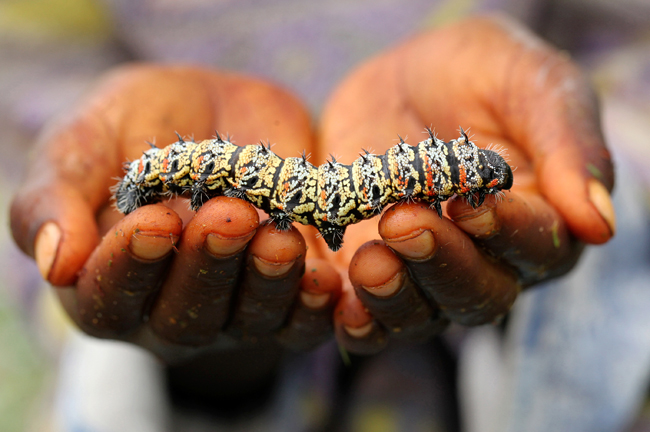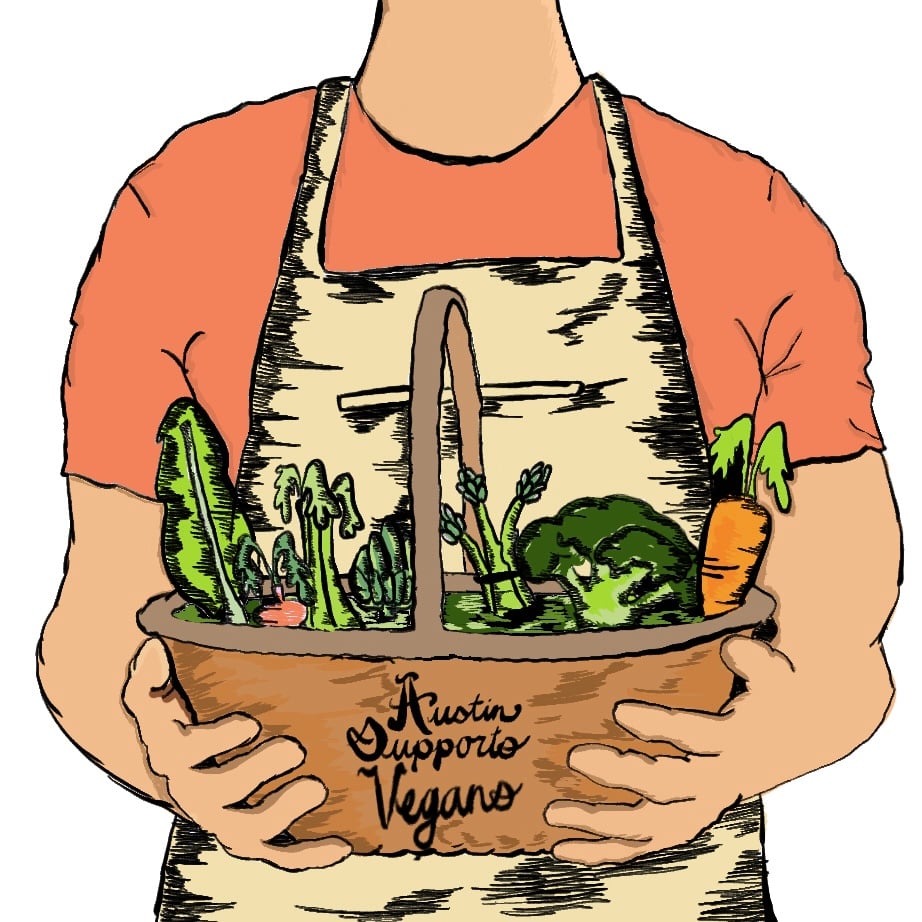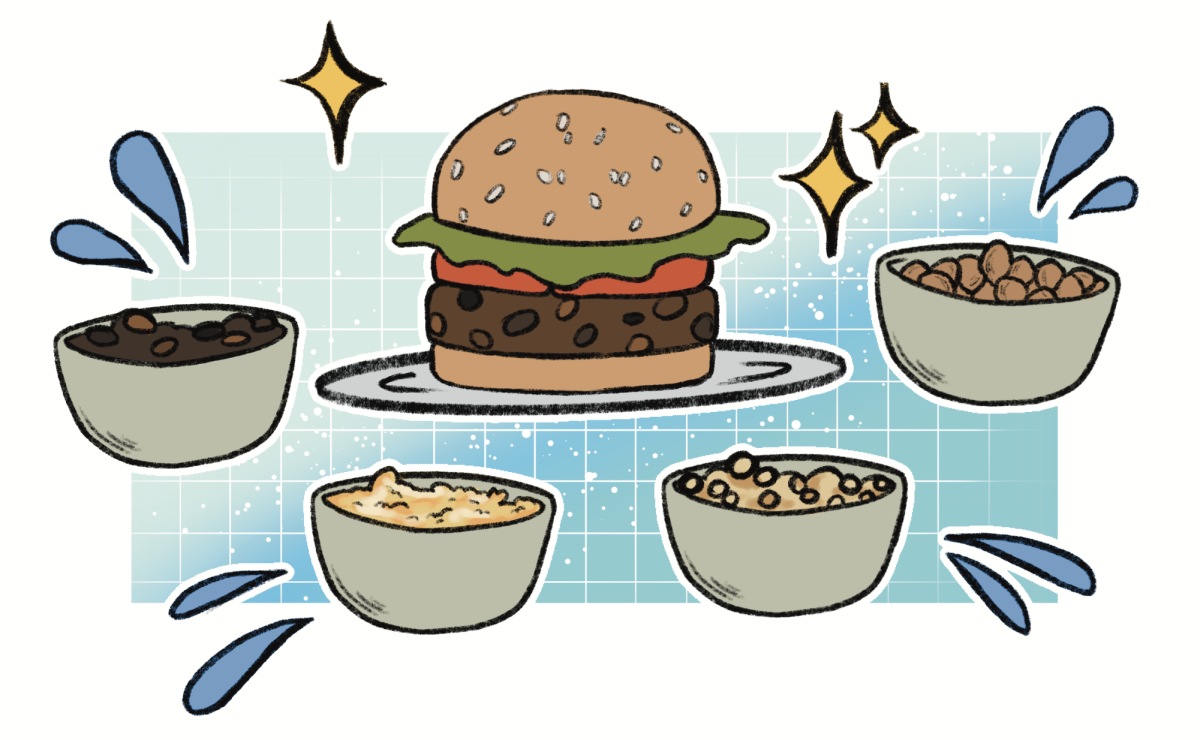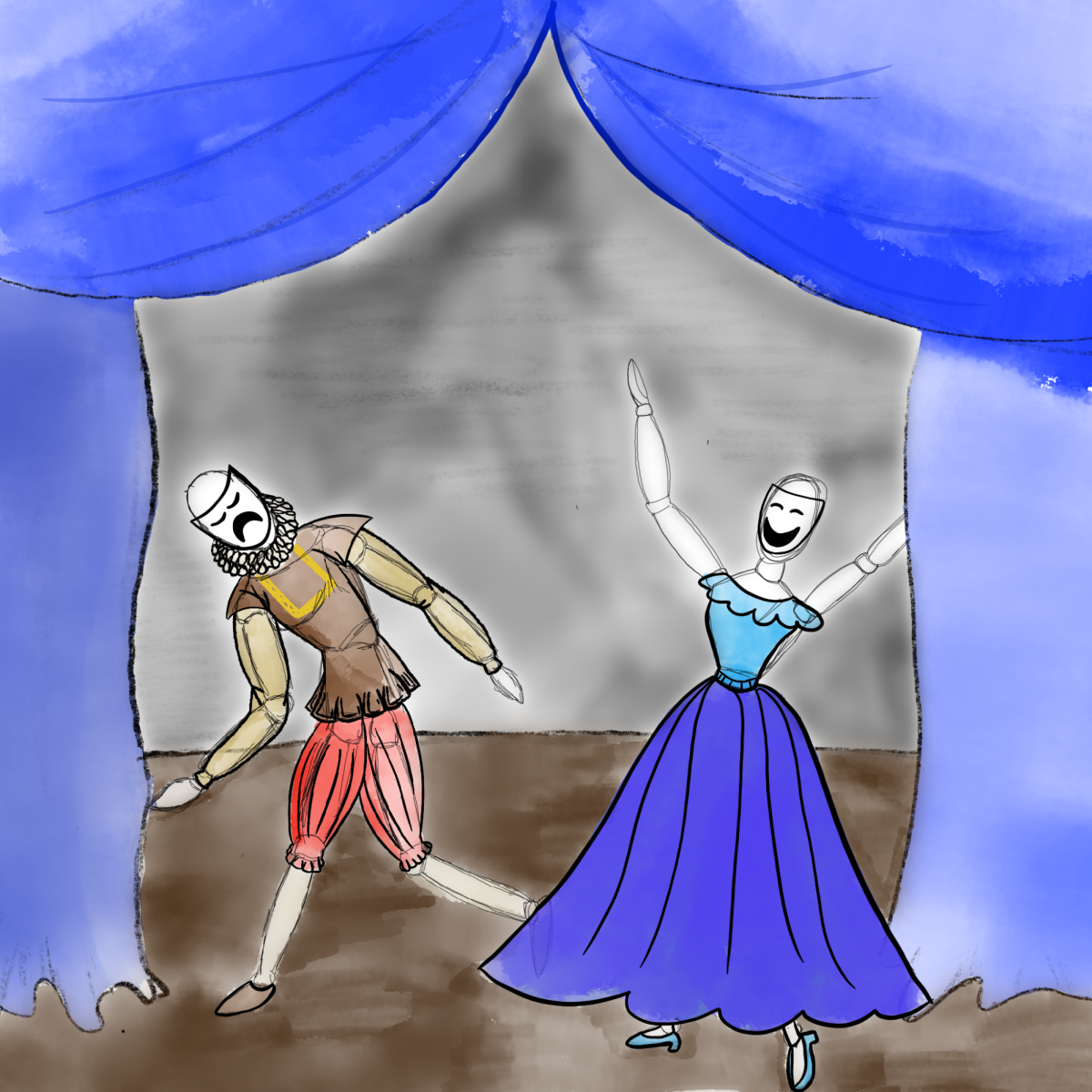GWANDA, Zimbabwe — In Zimbabwe, mopane worms are a staple part of the diet in rural areas and are considered a delicacy in the cities. They can be eaten dry, as crunchy as potato chips, or cooked and drenched in sauce. When harvest season for the worms began recently, I decided to document the process, and I found it somewhat stomach-turning. But the worms can be mighty tasty and they’re very nutritious. Here’s the scoop on mopane worms.
THE MOPANE WORM
The worm is the large caterpillar of the Gonimbrasia belina species, commonly called the emperor moth. It’s called a mopane worm because it feeds on the leaves of mopane trees after it hatches in summer. It has also burrowed into literature, finding its way, for example, into the pages of Alexander McCall Smith’s series “The No. 1 Ladies’ Detective Agency,” set in neighboring Botswana. At least one of the characters munches on dried mopane worms.
THE HARVEST
After six weeks of rain, the mopane worms cling to mopane trees in rural Gwanda, an arid cattle-ranching area in southern Zimbabwe. Amanda Ncube normally fetches firewood to sell and looks after the family cattle, but when it’s worm-harvesting season she joins other women and a few men in collecting the worms and piling them into buckets. The worms are as long as a hand and as thick as a cigar. Ncube carefully plucks them from the lower branches before climbing partway up the tree to shake off the higher worms. The more stubborn ones are pried loose with a long stick. The worms excrete a brown liquid once they make contact with skin, leaving the pickers’ hands wet and slippery. As they harvest the worms, the women and men move from one tree to another until their buckets are full. A thick slimy green fluid comes out as Ncube carefully squeezes out the entrails from a mopane worm she has just plucked from a tree. During harvest season, the porches of mud-walled homes are covered with thousands of worms, laid out to dry in the hot sun.
THE MARKET
At the local market, mopane worms are popular with residents who buy a cup or two of them and eat them immediately. The market is abuzz with activity, with most stalls strategically displaying the delicacy so people cannot miss them. Vendors offer free samples. The mopane worms are graded according to size and the area where they were harvested. Picky buyers ask about their provenance before buying, favoring worms from one district over another because of barely discernible — at least to all but the connoisseurs — differences in taste.
HIGH PROTEIN
The mopane worm is a healthful and cheap source of nutrition.
A Zimbabwean nutritionist, Marlon Chidemo, says the worms are high in healthy nutrients and contain three times the amount of protein as beef. He says eating worms is less taxing on the environment than consuming beef because it takes far fewer leaves to produce worms than it does feed to produce the same amount of beef.
WORMY BUSINESS
Dried mopane worms have become a multimillion-dollar industry, even exported to countries like South Africa and Botswana. They can be found in African restaurants in Paris.
PREPARATION
Once they’ve been dried out, they can be eaten straight away. They can also be cooked in a spicy or peanut butter sauce and served with pap, a maize porridge.
Having grown up eating the mopane worms, I have never had the opportunity to see how they harvest and prepare them until now. While the process is rather disgusting, the worm can be a pleasure to eat as a starter or a side dish. The taste is reminiscent of salty potato chips. Malawi’s first president, Hastings Kamuzu Banda, preferred his just like that, simply dried and then eaten as a snack like chips. Banda was known for carrying around pockets full of worms that he would also offer to children.
A RECIPE
Here is a Congolese recipe that AP’s special Africa correspondent Michelle Faul describes as “one of the tastiest” for mopane worms.
Mopani Worms for four people.
Ingredients: 500 grams dried mopane worms; three tomatoes, diced or one can of tomatoes; two onions, diced; one-half teaspoon turmeric; three fresh green chilies, finely chopped; three cloves of garlic, finely chopped; tablespoon of fresh ginger, finely chopped. Soak dried worms in water for three to four hours to reconstitute. Fry onions in groundnut oil on medium heat until translucent. Add turmeric, chilies, garlic and ginger. Fry for about five minutes. Add tomatoes and cook on low for about 20 minutes until spices are well blended. Add drained worms and cook until they have softened a bit but still are a little crunchy. Salt and pepper to taste. Serve with pap, called sadza in Zimbabwe. Enjoy.





















